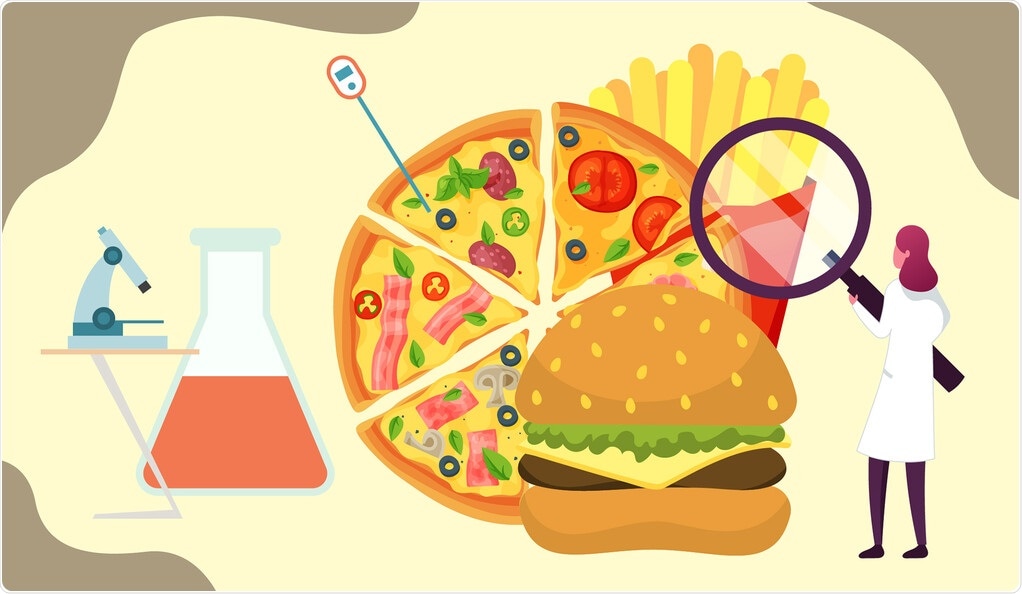For more than three decades, food allergies have been rising drastically across the developed world. For example, as many as 8% of U.S. children currently experience possibly lethal immune system responses to a variety of foods, like fish, shellfish, tree nuts, and milk. However, researchers have found it difficult to explain the reason for these allergies.

Image Credit: (© stock.adobe.com).
One prevailing concept is that food allergies emerged because of the lack of natural pathogens, like parasites, in today’s environment. This consequently makes the portion of the immune system, which emerged to address these natural threats, hypersensitive to specific foods.
In an article recently published in the Cell journal on January 14th, 2021, four immunobiologists from Yale University have suggested an expanded description for the emergence of food allergies—that is, the exaggerated stimulation of the food quality control system—a highly evolved and complex program developed to protect people from eating dangerous foods.
The presence of environmental chemicals, like dishwashing detergent, or unnatural substances, such as processed food, in today’s environment, in addition to lack of natural microbial exposure, play a key role in disturbing this food quality control program, argued the researchers.
The concept can form the basis for upcoming prevention or treatment of food allergies, suggested the researchers.
We can’t devise ways to prevent or treat food allergies until we fully understand the underlying biology. You can’t be a good car mechanic if you don’t know how a normal car works.”
Ruslan Medzhitov, Study Co-Author and Sterling Professor of Immunobiology, Yale University
Medzhitov is also an investigator for the Howard Hughes Medical Institute.
In animal biology, the quality food control program contains sensory guardians—if something tastes or smells bad, people will not consume it. And the human gut contains sentinels—if people eat toxins, these are identified and eliminated. In the latter situation, a portion of the immune system and also the parasympathetic arm of the nervous system work to help neutralize the threat.
An immune system response like this sets off allergies, such as food allergies—a fact that resulted in the supposed “hygiene hypothesis” of food allergies.
The absence of natural threats, like parasites, rendered this part of the immune system hypersensitive and more liable to react to usually harmless proteins present in specific food groups, according to the theory. This theory helped explain why individuals living in the world’s rural regions are relatively less likely to develop food allergies when compared to those living in more urban regions.
But Medzhitov noted that food allergies have continued to increase significantly even after the removal of parasites in the developed world. Therefore, the researchers from Yale University have now proposed that other environmental factors have impacted the natural food quality control system and played a role in the hypersensitivity of the immune system to specific food allergens.
One factor is increased use of hygiene products and overuse of antibiotics and, secondly, a change in diet and the increased consumption of processed food with reduced exposure to naturally grown food and changed composition of the gut microbiome. Finally, the introduction of food preservatives and environmental chemicals such as dishwashing detergents introduced novel elements for immune system to monitor.”
Ruslan Medzhitov, Study Co-Author and Sterling Professor of Immunobiology, Yale University
On the whole, these environmental changes effectively activate food quality control responses, making the immune system respond to food proteins the way it would respond to harmful substances, argued the researchers.
“It’s guilt by association,” added Medzhitov.
Food allergies are the same as many other disorders, which are induced by atypical models of normal biological responses, Medzhitov added. Interpreting the fundamental biology of normal processes, like food quality control systems, should help investigators spot potential culprits not only in food allergies but also in various other diseases, concluded the researchers.
Yale co-authors include Esther Florsheim, a former postdoctoral research associate, Zuri Sullivan, a postdoctoral associate, and William Khoury-Hanold, a postdoctoral fellow from the Yale Department of Immunology.